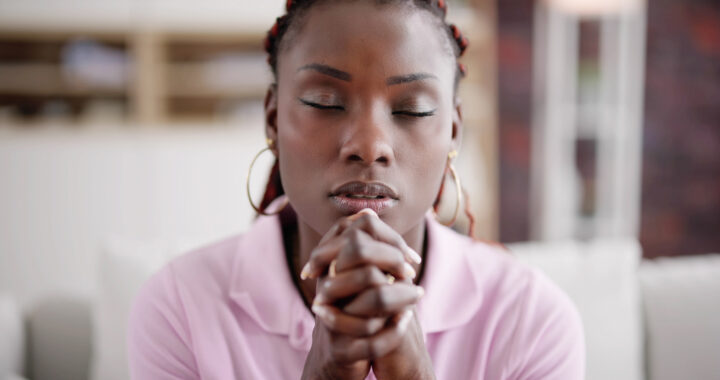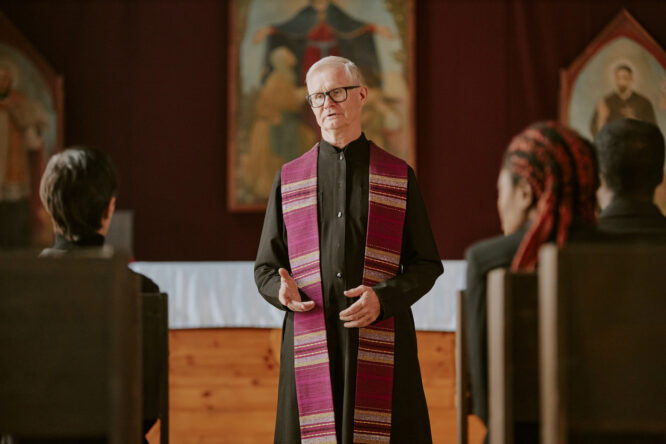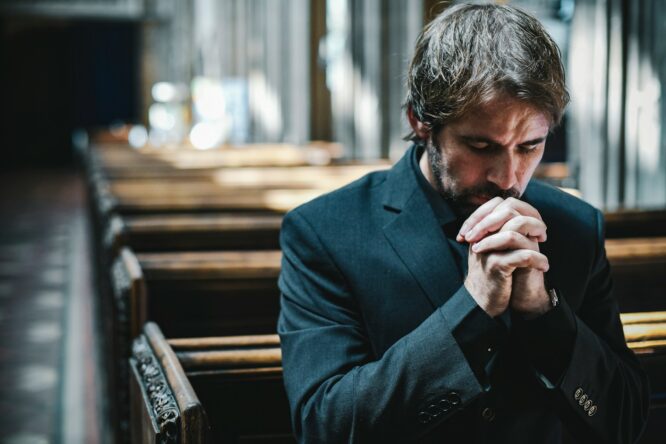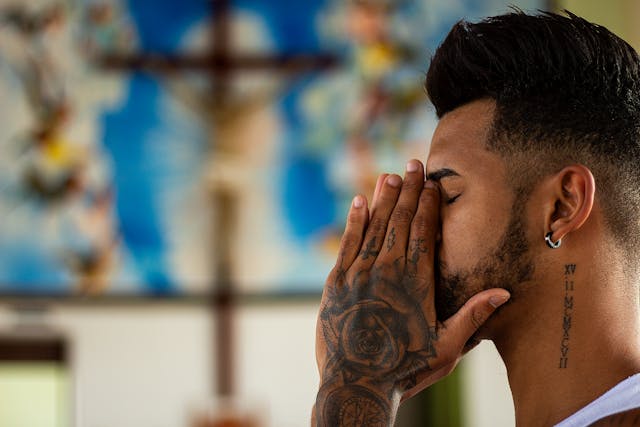Religious texts are often treated like rulebooks—quoted in pieces, summarised in sermons, or filtered through tradition.

However, when you actually dig into them, they can be more surprising, layered, and even contradictory than people expect. Many believers hold strong views based on teachings they’ve heard second-hand, while skipping over the more challenging or overlooked parts of the same texts. Whether you’re religious, spiritual, or just curious, here are 15 things sacred texts actually say that don’t often get brought up in everyday faith conversations.
1. Doubt is actually part of faith, not a weakness.
 Source: Unsplash
Source: Unsplash Many religious stories include people questioning, wrestling with, or even arguing with God. In some traditions, that struggle is honoured. But in real life, people are often made to feel like doubt means they’re not faithful enough. Texts show again and again that uncertainty isn’t something to hide; it’s part of the journey. Whether it’s prophets feeling unqualified or disciples running scared, faith doesn’t always look like confidence. Sometimes it looks like not giving up, even when nothing makes sense.
2. Money is warned about way more than it’s glorified.

In both the Bible and other sacred texts, wealth is mentioned often, but rarely as a goal. It’s usually talked about as something that can distract, corrupt, or create injustice if it’s not handled wisely. Yet in some modern circles, especially those with prosperity messaging, you’ll hear more about blessings and financial favour than about the real warnings. The texts themselves are pretty clear: money isn’t bad, but it can make people forget what actually matters.
3. Women play powerful roles, but they’re often sidelined in interpretation.

In many sacred stories, women are prophets, judges, warriors, and spiritual leaders. They show up with strength, wisdom, and influence, often in times when culture didn’t allow them public voice. The strange thing is, when those texts get retold, a lot of those details are left out or softened. People know the names of the men. The women? Often forgotten or framed as background. The texts offer more complexity; it’s the teaching that sometimes narrows it down.
4. Compassion is mentioned more often than punishment.

You’d think religion was mostly about rules and wrath by the way some people talk. But most texts talk way more about mercy, forgiveness, and caring for the vulnerable than about judgement. It’s easier to lead with fear than with gentleness, which is probably why some groups focus more on sin than grace. However, when you read the whole thing, compassion usually outweighs condemnation, even if that’s not the loudest message in the room.
5. There are parts that directly challenge tradition.

Ironically, many sacred texts call out empty rituals and rigid traditions. Prophets in particular were often confronting their own religious communities, not outsiders, for losing the heart of the message. This gets skipped over a lot, especially in communities that cling to doing things “the right way.” But the texts themselves show that questioning tradition and calling out hypocrisy is part of spiritual growth, not rebellion.
6. Interfaith respect shows up more than people expect.

Some religious texts include moments of deep respect toward people from different faiths or backgrounds. Stories of hospitality, honour, and shared wisdom go beyond tribal boundaries. However, many believers are taught to keep their distance from anything “other.” The texts themselves, though, often paint a broader picture—one where kindness and integrity matter more than labels.
7. Leaders are often deeply flawed, and that’s the point.

Some of the most central religious figures make big mistakes: lying, doubting, disobeying, or just struggling to keep faith. These aren’t hidden; they’re part of the story. sadly, they don’t always make it into the polished, idealised versions people tell. It matters because it reminds us that spiritual life isn’t about perfection. It’s about persistence. The people who stumble and keep going are often the ones who shape the story most.
8. Hospitality to outsiders is a repeated command.

Across multiple religious texts, there’s a strong emphasis on caring for strangers, immigrants, widows, and the poor. Opening your door and your table isn’t optional—it’s sacred. Still, many modern believers are more focused on protecting what’s theirs than extending compassion. That tension between text and action is one of the biggest gaps that rarely gets discussed out loud.
9. Justice isn’t just about personal behaviour — it’s systemic.

Religious texts don’t just call for personal morality. They call for fair treatment of workers, just use of land, economic equality, and care for the oppressed. These ideas are often political, and deeply spiritual. However, in many modern religious communities, justice talk is limited to personal choices or charity. The bigger systems get overlooked, even though the texts speak directly to them, often in bold terms.
10. Silence and rest are spiritual practices, not laziness.

From sabbath days to moments of solitude in the wilderness, rest is built into spiritual rhythms. It’s not just allowed; it’s encouraged, commanded, and honoured as holy space. Still, many faith cultures have absorbed hustle culture and view rest as weakness, but the texts themselves say otherwise. They teach that silence, stillness, and stepping away are how we reconnect with something deeper than noise.
11. There’s more poetry than instruction.

People often expect religious texts to be straightforward, but much of what’s written is poetic, metaphorical, or layered in meaning. These aren’t manuals; they’re stories, psalms, and meditations. This matters because it invites interpretation, not rigid rule-following. However, many believers prefer certainty to nuance, and so the poetry gets flattened into soundbites that lose the depth behind the original words.
12. Love of neighbour is placed above ritual in many teachings.

There are moments in multiple texts where love, mercy, and relationship are named as more important than correct practice or sacrifice. The heart behind the action is valued more than the action itself. That flips a lot of assumptions. It means getting the rituals “right” isn’t enough. If love isn’t at the centre, the rest misses the point, and that’s something the texts say plainly, even if it’s not always echoed in communities.
13. Anger toward God is shown, and not condemned.

Some of the most raw, emotional parts of religious texts involve people yelling at God, crying out, asking why, or even accusing the divine of not showing up. Those moments aren’t cut—they’re honoured. It’s a reminder that real spirituality makes space for all emotions, not just the polite ones. Sadly, a lot of people grow up believing questioning or venting at God is wrong, when the texts clearly show it’s part of the relationship.
14. Faith and mystery go hand in hand.

Despite centuries of doctrine and certainty, many religious texts openly embrace mystery. They admit not everything can be understood, and some things are simply beyond comprehension. That openness gets lost when people treat faith like a fixed list of answers. The thing is, the original writings often invite awe, not certainty. They ask more questions than they answer, and that’s by design.
15. The people who question everything are often the ones closest to the divine.

In story after story, the ones who push back, doubt, or wrestle with their beliefs aren’t rejected. Instead, they’re often called, chosen, or transformed. The tension becomes the path. That gets forgotten in traditions that prioritise blind faith. But the texts themselves show that asking honest questions isn’t spiritual failure. In fact, it’s often the doorway into deeper connection.



